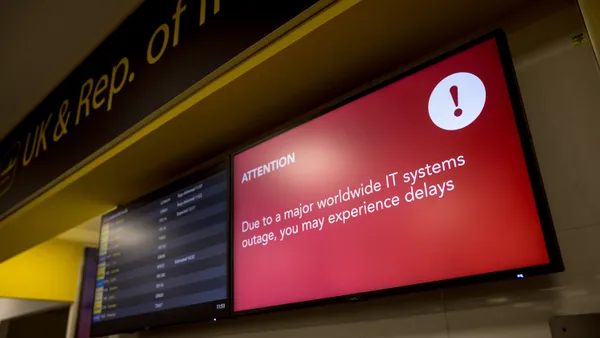Dive Brief:
- Messaging, chat, voice and video comprised 80% of the average workday during 2020, according to a report published by the Prodoscore Research Council. The study evaluated more than 900,000 data points from nearly 7,000 employees.
- Time spent on voice, video and chat/message applications increased 100% year over year in 2020, according to the report.
- Fears of an efficiency crisis in 2020 were oversold, Prodoscore found. Year-over-year productivity levels exceeded 2019 numbers every month during 2020, with March 2020 surpassing 2019 levels by 207.6%. To gauge productivity, Prodoscore measures daily activity by integrating with with and monitoring a company's Google or Microsoft cloud tenants, including email, calendar and chat.
Dive Insight:
In the 2020 tech stack, cloud-based applications allowed workers to stay connected and operational, with collaboration tools helping allay concerns of a drop in productivity induced by remote work.
Just 28% U.S.-based workers at home during the pandemic said they are not as productive at home, according to Andrew Hewitt, senior analyst at Forrester. Over half of U.S. employees said they have the flexibility in work schedule and obligations to take care of family members should they need to.
"While there are still many companies that are concerned over remote worker productivity, in general most companies were successful at keeping employees productive while at home," said Hewitt in an email.
Upwork's One Year Remote report aligns with the findings on Prodoscore Research Council's data. When asked if productivity rose after working remotely, 61% said yes, and just 12.7% said no, according to the Upwork report.
In the transition to a remote work model, it was collaboration tools which were proven as a digital bridge to uphold existing workplace connections and support operations thanks to additional capabilities.
"Working remotely proved that it's unnecessary to bring workers together all of the time," said Carrie Marshall, CEO and founder of Talk Social to Me, in an email. "Some productivity gains likely came from the simple attention shifts afforded by home-based working: no commute, no days spent on the road for in-person meetings, and no unnecessary office get-togethers."
Knowledge workers especially can benefit working asynchronously through collaboration apps, Marshall said.
"When workers are trusted to perform on their own schedules, and when they develop healthy norms with their teams when using collaboration tools, efficiencies are created and everyone can get more done," said Marshall. "It's a shift many of us in the collaboration space have been hoping to see for a decade."












